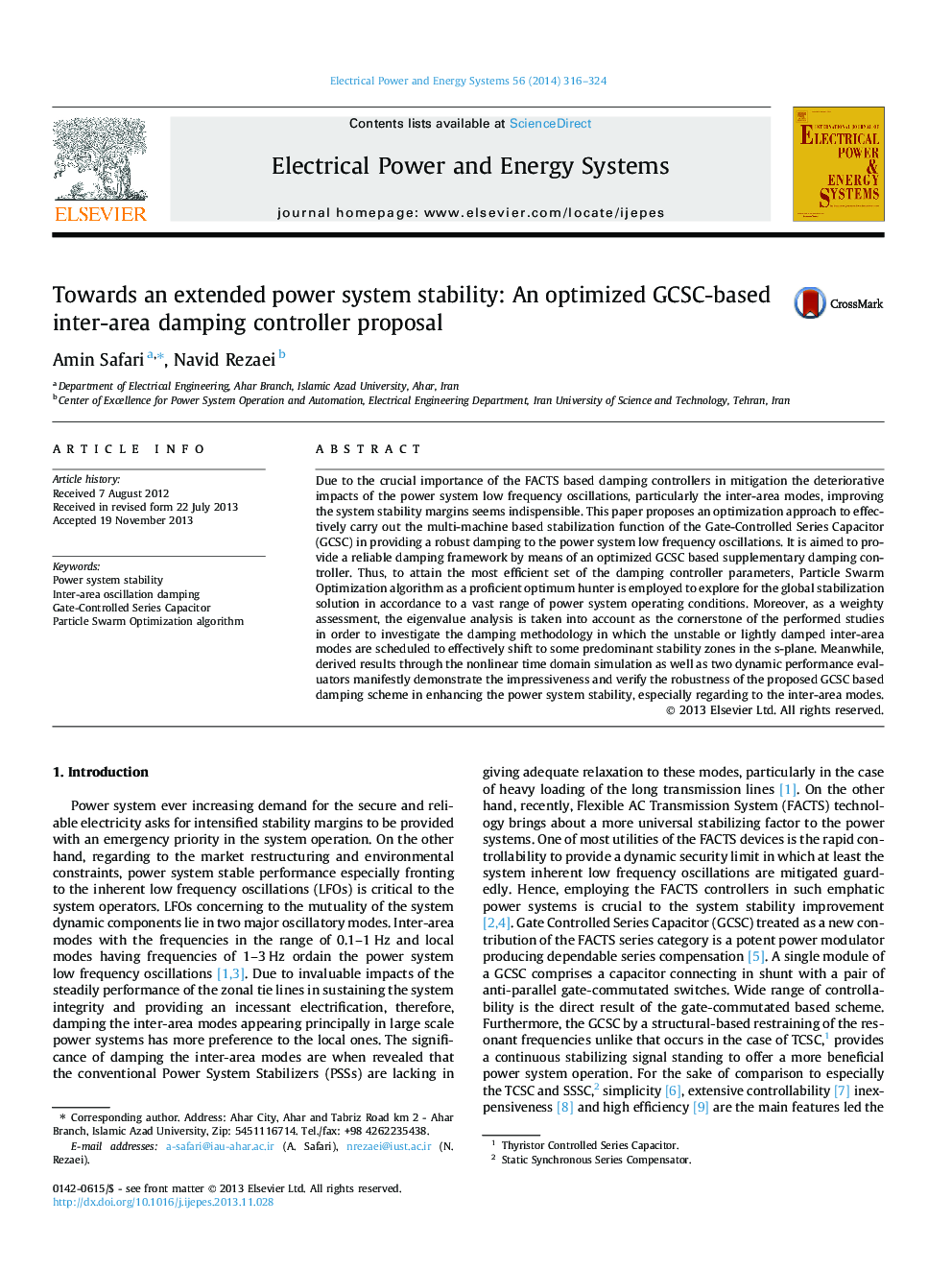| Article ID | Journal | Published Year | Pages | File Type |
|---|---|---|---|---|
| 398542 | International Journal of Electrical Power & Energy Systems | 2014 | 9 Pages |
•Investigation the damping capability of the GCSC as a potent series compensator.•Proposing a novel/detailed dynamic model to analysis the damping function of GCSC.•Enhancing the power system stability focusing on the inter-area oscillatory modes.•Providing efficient damping strengthen of the system dominant interarea eigenvalues.
Due to the crucial importance of the FACTS based damping controllers in mitigation the deteriorative impacts of the power system low frequency oscillations, particularly the inter-area modes, improving the system stability margins seems indispensible. This paper proposes an optimization approach to effectively carry out the multi-machine based stabilization function of the Gate-Controlled Series Capacitor (GCSC) in providing a robust damping to the power system low frequency oscillations. It is aimed to provide a reliable damping framework by means of an optimized GCSC based supplementary damping controller. Thus, to attain the most efficient set of the damping controller parameters, Particle Swarm Optimization algorithm as a proficient optimum hunter is employed to explore for the global stabilization solution in accordance to a vast range of power system operating conditions. Moreover, as a weighty assessment, the eigenvalue analysis is taken into account as the cornerstone of the performed studies in order to investigate the damping methodology in which the unstable or lightly damped inter-area modes are scheduled to effectively shift to some predominant stability zones in the s-plane. Meanwhile, derived results through the nonlinear time domain simulation as well as two dynamic performance evaluators manifestly demonstrate the impressiveness and verify the robustness of the proposed GCSC based damping scheme in enhancing the power system stability, especially regarding to the inter-area modes.
